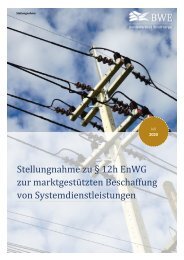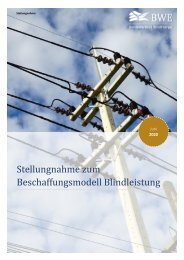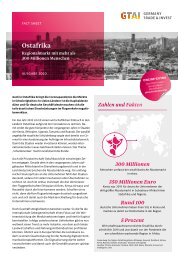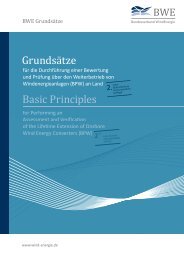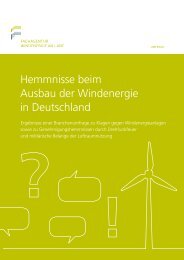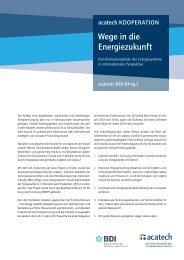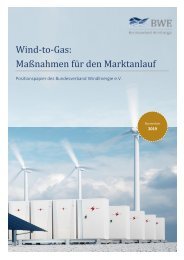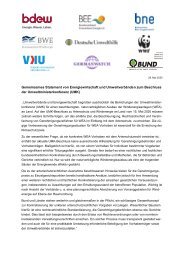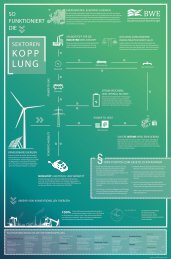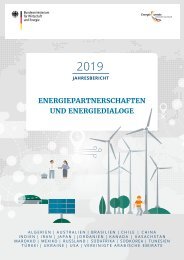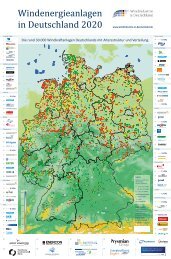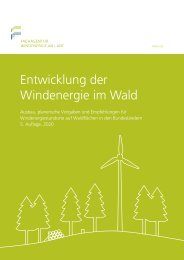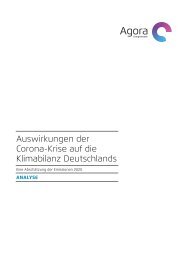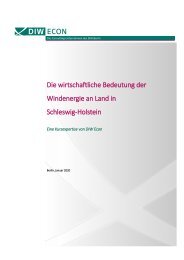vierter-monitoring-bericht-energie-der-zukunft-englische-kurzfassung
You also want an ePaper? Increase the reach of your titles
YUMPU automatically turns print PDFs into web optimized ePapers that Google loves.
2<br />
Central messages from the<br />
Fourth Monitoring Report<br />
• zEnergy consumption fell by 4.7% in 2014 from the 2013<br />
level. Much of this reduction can be attributed to the<br />
mild winter of 2014. At 13,132 petajoules, energy consumption<br />
reached its lowest level since 1990.<br />
• zRenewables are Germany’s number-one source of electricity.<br />
In the first half of 2015, the proportion of electricity<br />
consumption covered by renewable energy rose<br />
above 30% for the first time. Germany is on course to<br />
meet its renewable electricity consumption targets.<br />
The level of the EEG surcharge has stabilised.<br />
• zOn average, Germany’s energy efficiency increased by<br />
an annual 1.6% between 2008 and 2014, which is less<br />
than the 2.1% envisaged by the Fe<strong>der</strong>al Government in<br />
its Energy Concept. Further action is required here. For<br />
this reason, the Fe<strong>der</strong>al Government brought together<br />
and strengthened the efforts to boost energy efficiency<br />
in the National Action Plan on Energy Efficiency<br />
adopted on 3 December 2014.<br />
• zFinal energy consumption in the transport sector was<br />
approx. 1.7% higher in 2014 than in 2005. If Germany is<br />
to attain its target of cutting final energy consumption<br />
by 10% from the 2005 figure, further efforts will be<br />
required.<br />
• zFor the first time in more than ten years, the electricity<br />
prices for household customers fell at the beginning of<br />
2015. For industrial and commercial customers not<br />
covered by special arrangements, electricity prices<br />
remained virtually constant in 2014. Trading prices for<br />
electricity were down by a further 10% last year and<br />
have continued to fall in 2015.<br />
• zIn 2014, Germany imported fossil fuels worth approx.<br />
€81 billion, down from the 2013 figure of around €95<br />
billion. Whilst much of these savings can be attributed<br />
to lower commodity prices, Germany has also cut down<br />
on the volume of these imports.



